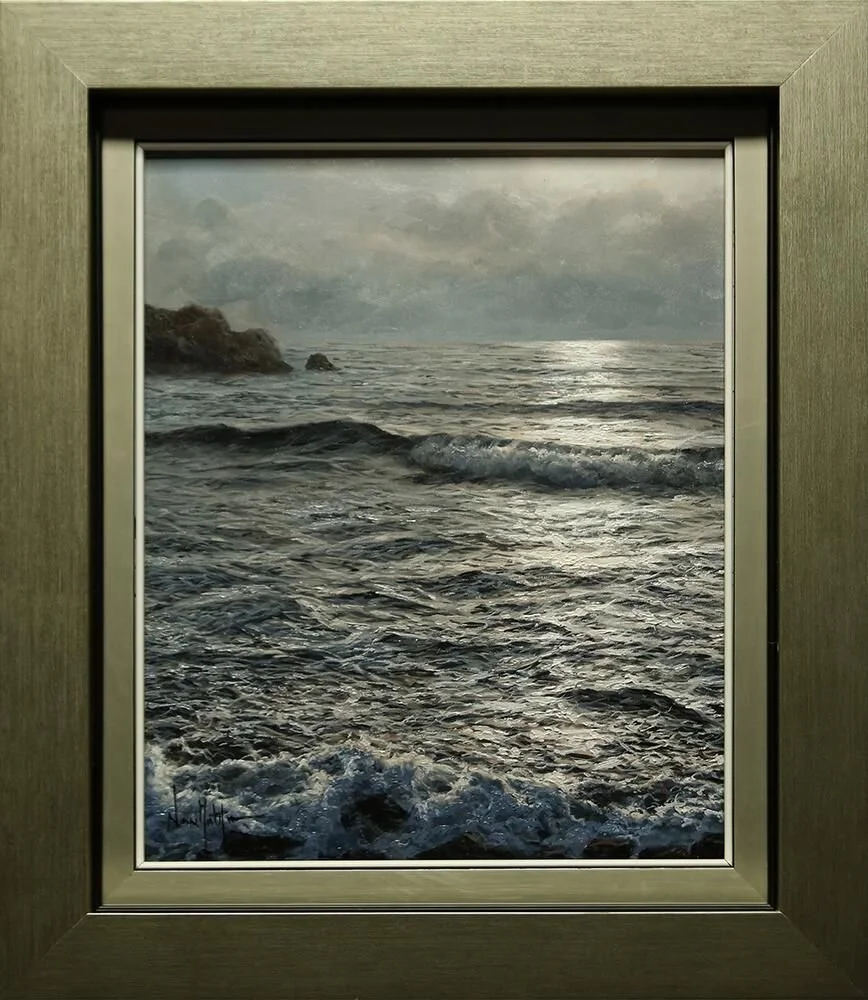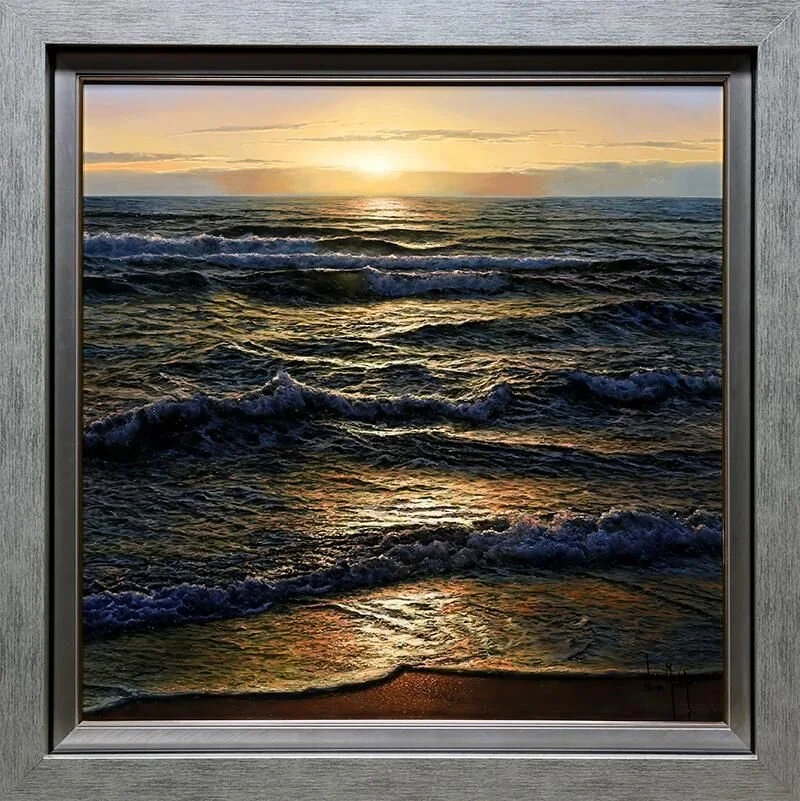
Alfredo Navarro
Alfredo Navarro Montllor was born in Alcoy (Alicante) in 1965. The oldest of three brothers, he has always lived an artistic life, as his father was also an artist who supported him when Navarro was very young, getting him involved in artistic activities, even though in the end it was his vocation which made him dedicate himself professionally to the art world. At the age of five he began at the Fine Arts school painting murals, carrying out this activity until he was eight. He studied EGB (similar to middle school) and before going to high school, and when he was 13, he began to paint with oil. His favorite subjects in the beginning were florals and landscapes. He alternated between painting and his schooling until he finished high school, when he was assigned to La Coruña (Galicia, on the Atlantic Spanish coast) in order to serve in the military (1985-86), where by request from his superiors, he painted two murals on the walls of the dining room of the barracks.
It was during the year that he spent in the northern region of Spain when Navarro Montllor started to discover his fascination and admiration for the immensity of the ocean, seeing that the conditions that this ocean offered was very different from the ones given to him in the Mediterranean Sea. It was also during this time that Navarro entered a painting contest that was celebrated on Armed Forces Day, presenting in the contest two paintings, a portrait of the King Juan Carlos I of Spain, as well as a military scene, the latter winning first prize. Finished with this chapter in his life, and in spite of his vocation as an artist and given the difficult situation at the time, Navarro began to study Economics (1988), which didn’t stop him from his restlessness towards painting, and made him enter to form a part of the Fine Arts Circle, where he attended daily live drawing classes and had the opportunity to study the works of the Masters: Sorolla, Benlliure, and Rusiñol. He also made frequent visits to the San Pío V Fine Arts Museum in Valencia, where he spent long hours studying from the Great Masters throughout time.
In finishing his economic studies, he returned to Alcoy (1994) and began to paint along with his father and brother, also an artist, with whom he shared a studio. It was then that he centered all of his effort and knowledge on painting, now based exclusively on the ocean and the sea as the main subject, as well as absorbing the knowledge and experience that his father offered him. After this stage in his life, Navarro established his own studio (1996), exclusively dedicating himself to perfect his technique, incessantly looking for the realism in his paintings. He enjoyed spending a lot of time alone in his studio with his only company being Bach, his favorite Baroque composer, and searching among his files. A huge classical music lover, he feels a special sensitivity towards baroque music, which always accompanies him throughout most of the day. Navarro tries to show the spectator a window that shows the beauty of the sea, as he perceives it; in addition he confesses that his works reflect to a great extent his frame of mind.
Movies are also one of his interests, in which he dedicates part of his free time, as well as adventurous sports such as swimming, hiking, and especially biking. He is also involved in the local festivities in his city, which each year commemorates the expulsion of the Arabs by the Christians in the XIII Century, by way of a parade. Without a doubt, Navarro makes the most of his trips by taking notes and snapshots; his getaways to the Northeast of the peninsula, including the Portuguese coast, are frequent. He also takes advantage of the closeness of the Mediterranean Sea, which is a source of inspiration for its calm seascapes. His last exhibition took place in the Sala Segrelles in Valencia in 2008. Alfredo is single and does not have children. He is the oldest of three brothers, Pau (middle child), also an artist, and Moisés (youngest child), a telecommunications engineer. His father, Alfredo, is also an artist, and his mother, Rosa, is a housewife.
Alfredo paints during the day and with artificial light, which allows him to obtain the same lighting conditions at any moment during the day, and during any season of the year. He uses the technique of oil on canvas or board, using as a base in his compositions the photographs that he takes, with a large dose of his own imagination. The largest painting that he has painted were the two murals of 3 by 1.8 meters each, which he made on the walls of the dining room of the barracks, while he was doing his military service in La Coruña (Spain). Among his favorite artists are: Doménikos Theotokópoulos El Greco (1541-1614), Diego Rodríguez de Silva y Velázquez (1599-1660), Francisco de Goya y Lucientes (1746-1828), Pablo Picasso (1881-1973), and Jean-Michel Basquiat (American, 1960 - 1988).
In regards to his painting, Alfredo comments:
“Considering my artwork, I am not looking to confront the spectator with the many questions that affect our lives or the contradictions that the world offers today. Without a doubt these kinds of paintings are interesting and necessary, but in my opinion, they generate restlessness and uneasiness on many occasions. Considering that now that there is enough restlessness and uneasiness in our daily lives, the purpose of my paintings, on the contrary, is to define a spatial-temporal atmosphere of relaxation and stimulation (sunsets and rough seascapes, respectively) which helps to compensate the anxieties which provoke our daily occurrences. From this point of view, I can say that my artwork looks to be therapeutic, and for this purpose I don’t think that there is a subject matter more effective than the sea.”























